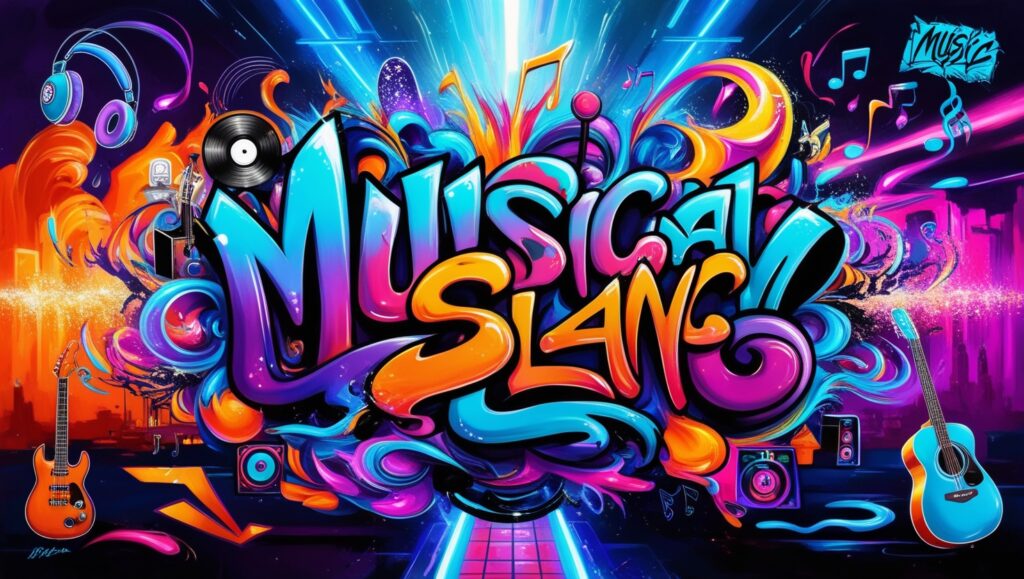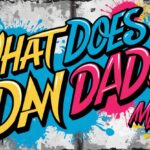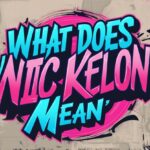Music has its own vibrant vocabulary that evolves as quickly as the beats and rhythms it inspires. Musical https://www.villagevirtuoso.com/common-musical-slang/ slang isn’t
just a collection of quirky terms; it’s a reflection of culture, emotion, and human connection. Let’s dive into the imaginative world of musical slang and explore how it amplifies the creativity of the industry.
🎤 A Symphony of Expression
Musical slang serves as a bridge between artists and fans. Words like “banger” for a hit track or “vibes” to describe a song’s atmosphere carry emotional weight. They encapsulate entire experiences in just a few syllables. These terms transcend language barriers, becoming universal expressions of joy, pain, and everything in between.
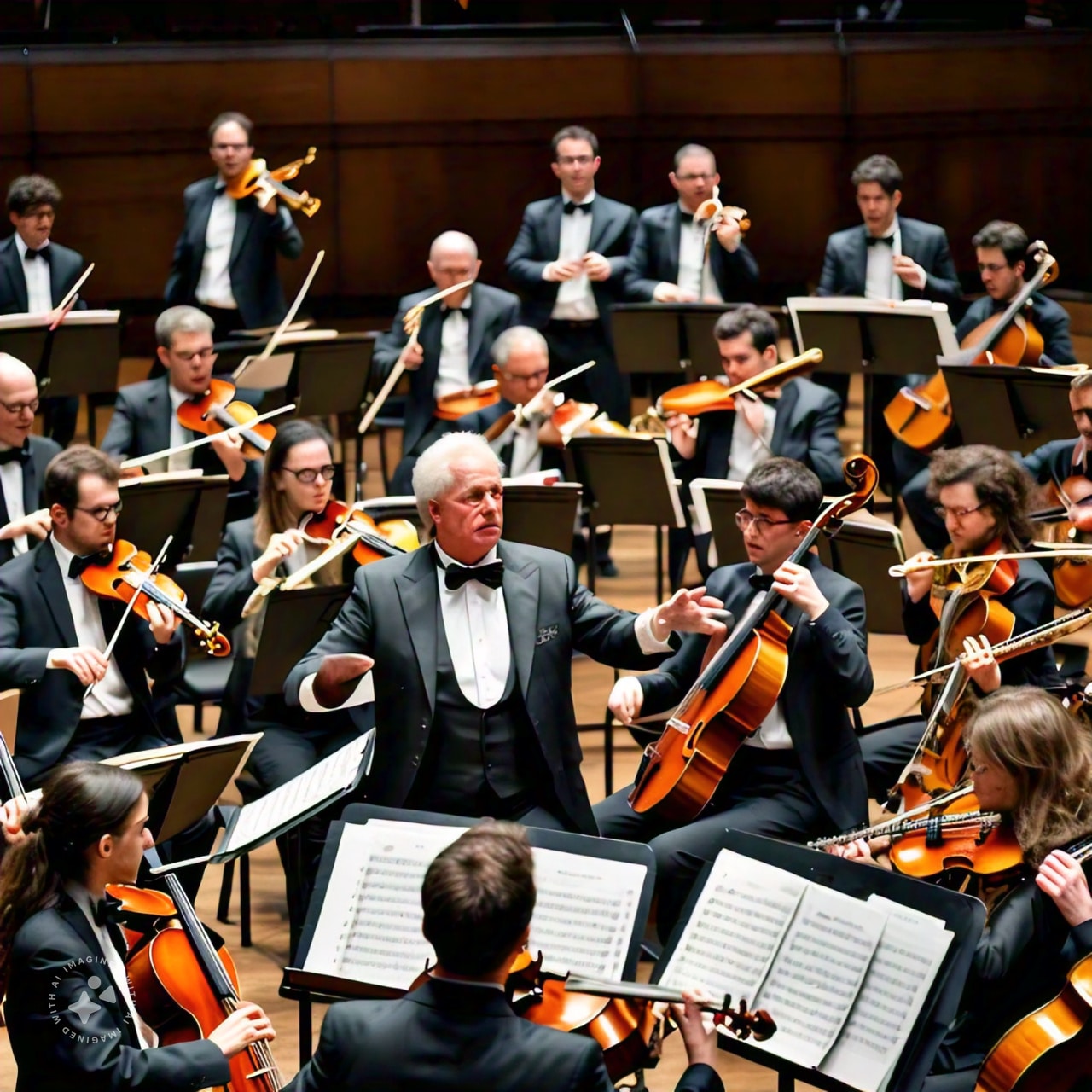
- Example: Calling a track “fire” instantly conveys its high energy and appeal.
- Perspective: It’s not just about the words but the feelings they evoke—sparking excitement and connection.
🎧 Street Rhythms and Studio Lingo
Slang often emerges from grassroots movements, shaping music genres like hip-hop, jazz, and EDM. In the studio, producers and artists develop shorthand phrases to streamline their creative flow. Terms like “loop it” (repeat a section) or “drop” (a dramatic beat shift) make complex ideas easy to communicate.
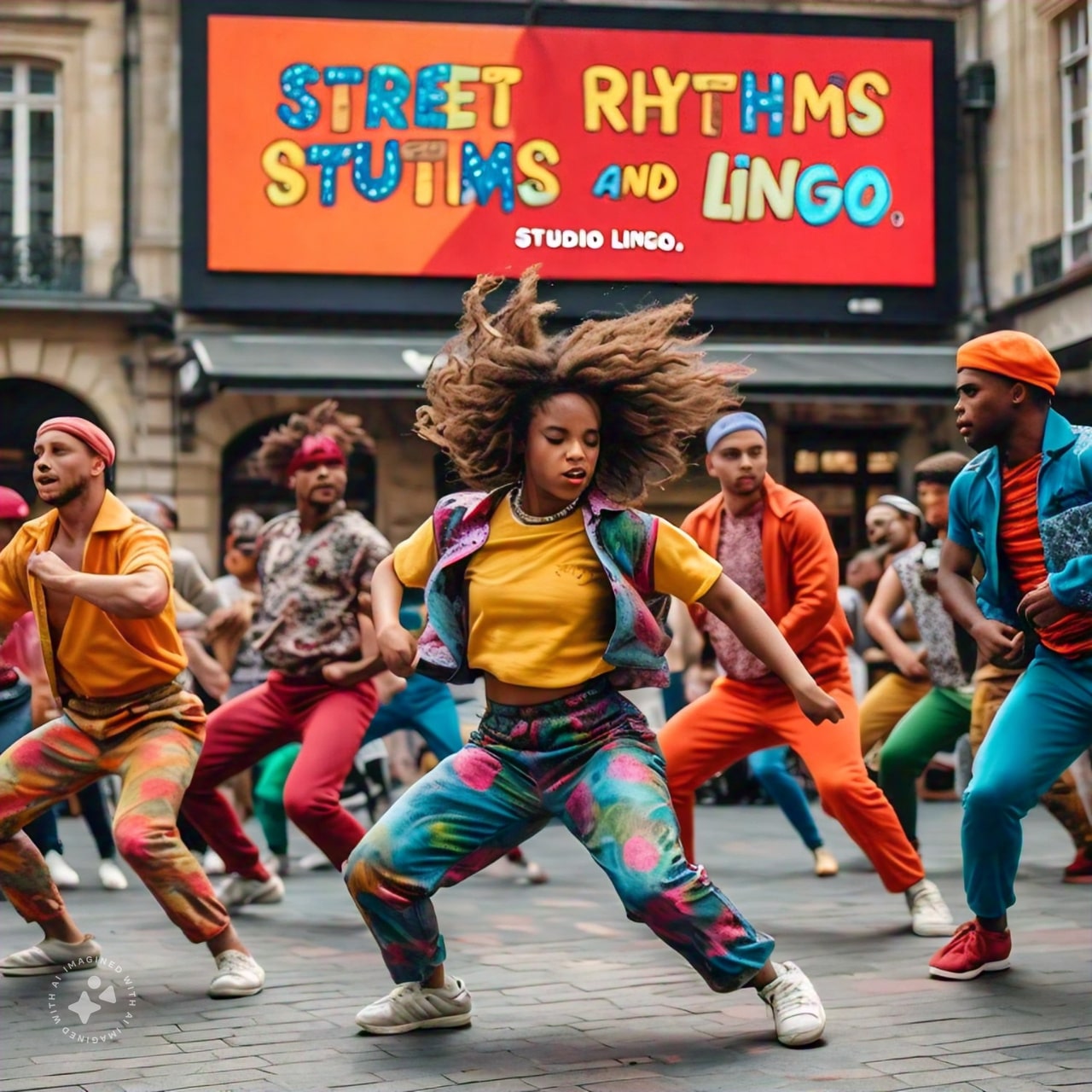
Common Studio Terms:
- Topline: The melody and lyrics layered over a beat.
- Stems: Individual components of a track used in mixing.
- Chops: Skillful manipulation of samples or sound clips.
Each term carries a backstory, rooted in the evolution of sound engineering and artistry.
🎼 Genres and Their Signature Slang
Different music styles boast unique slang, giving each genre its personality.
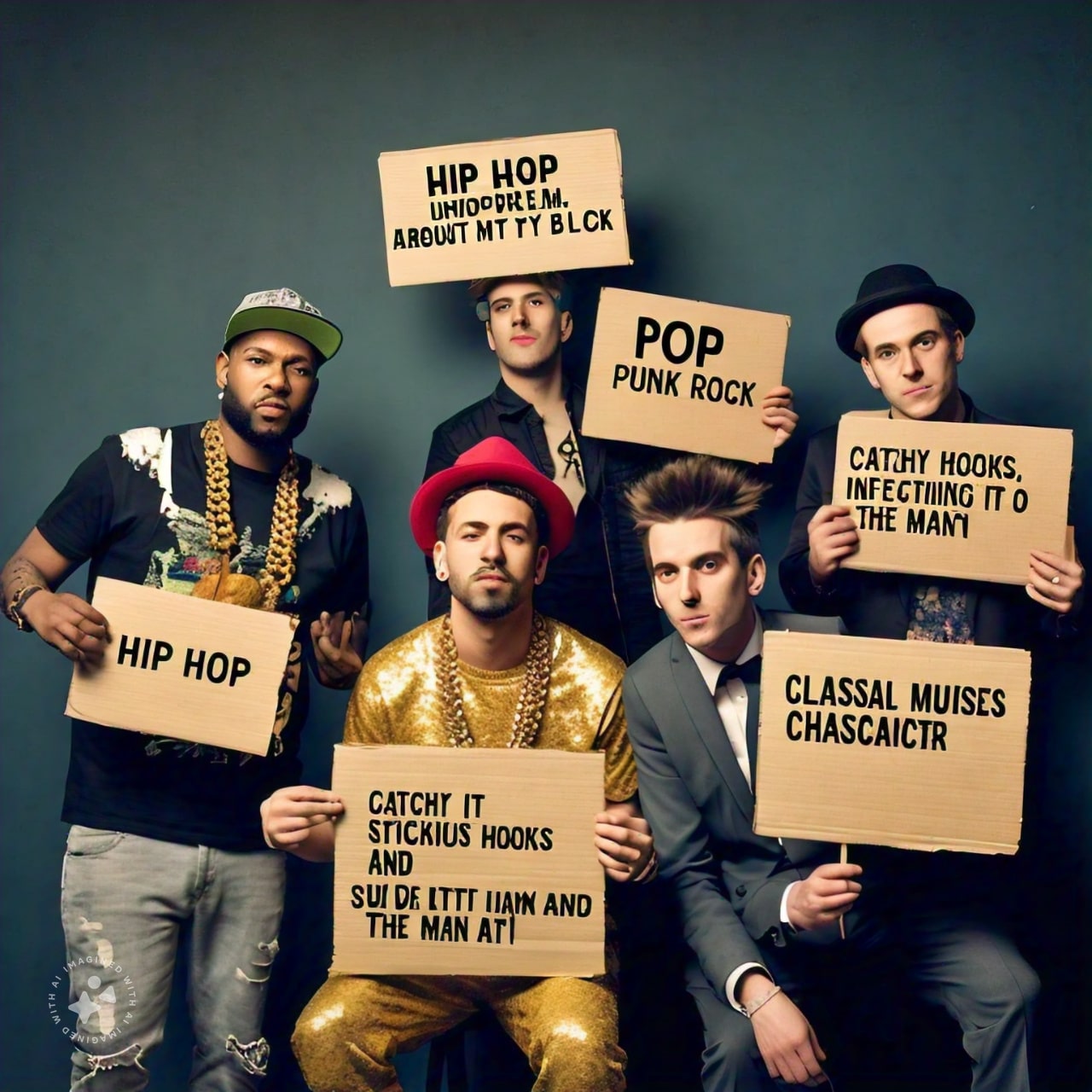
Hip-Hop 🛹
- Bars: Lyrical lines packed with meaning.
- Spit: Delivering a rap verse with intensity.
- Cypher: A freestyle rap session, often collaborative.
EDM 💿
- Plus: Peace, Love, Unity, Respect—a guiding principle of EDM culture.
Jazz 🎷
- Cat: A skilled musician.
- Licks: Short, impressive solos or phrases.
- Woodshedding: Intense practice sessions to refine skills.
🌟 Cultural Impact of Musical Slang
Musical slang reflects societal changes, generational attitudes, and emerging trends. For instance, phrases like “stan” (a passionate fan) and “ghost producer” (an uncredited music creator) highlight the nuances of fandom and industry dynamics.
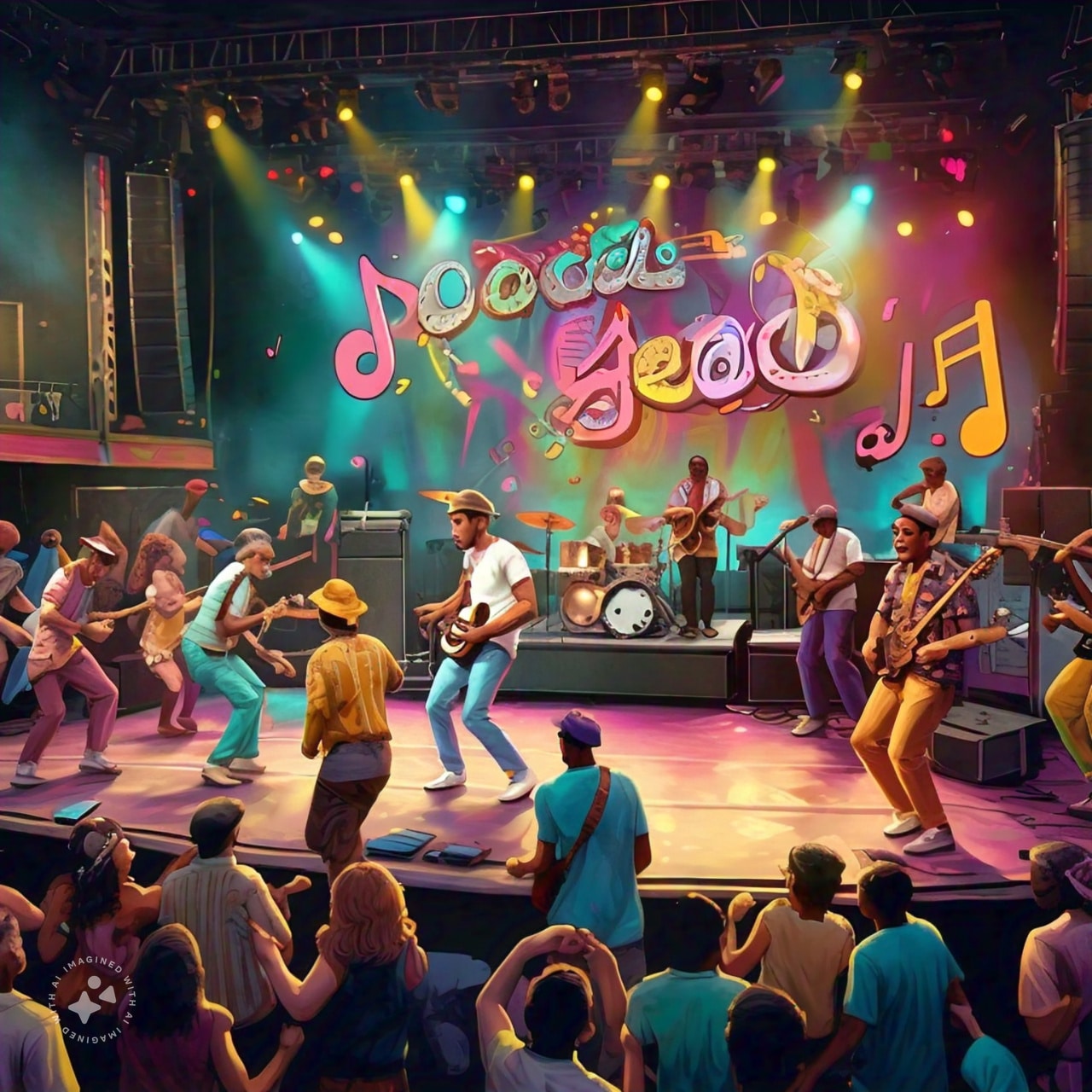
- Perspective: Slang evolves as artists push boundaries, blending cultures and genres. This dynamic growth ensures music—and its language—stays fresh and relevant.
✨ Imagination and Innovation
Musical slang fuels creativity, offering new ways to describe sounds, feelings, and ideas. It’s like giving the abstract a concrete form. For artists, using the right slang can shape an identity,

build a brand, or make their music relatable. For fans, it creates a sense of belonging, connecting them to something larger than themselves.
🎵 Why Musical Slang Matters
In the end, musical slang is more than just words. It’s a living, breathing expression of art, emotion, and culture. Whether you’re vibing to a “banger” or getting lost in the “flow,” you’re participating in a shared language that brings people together.
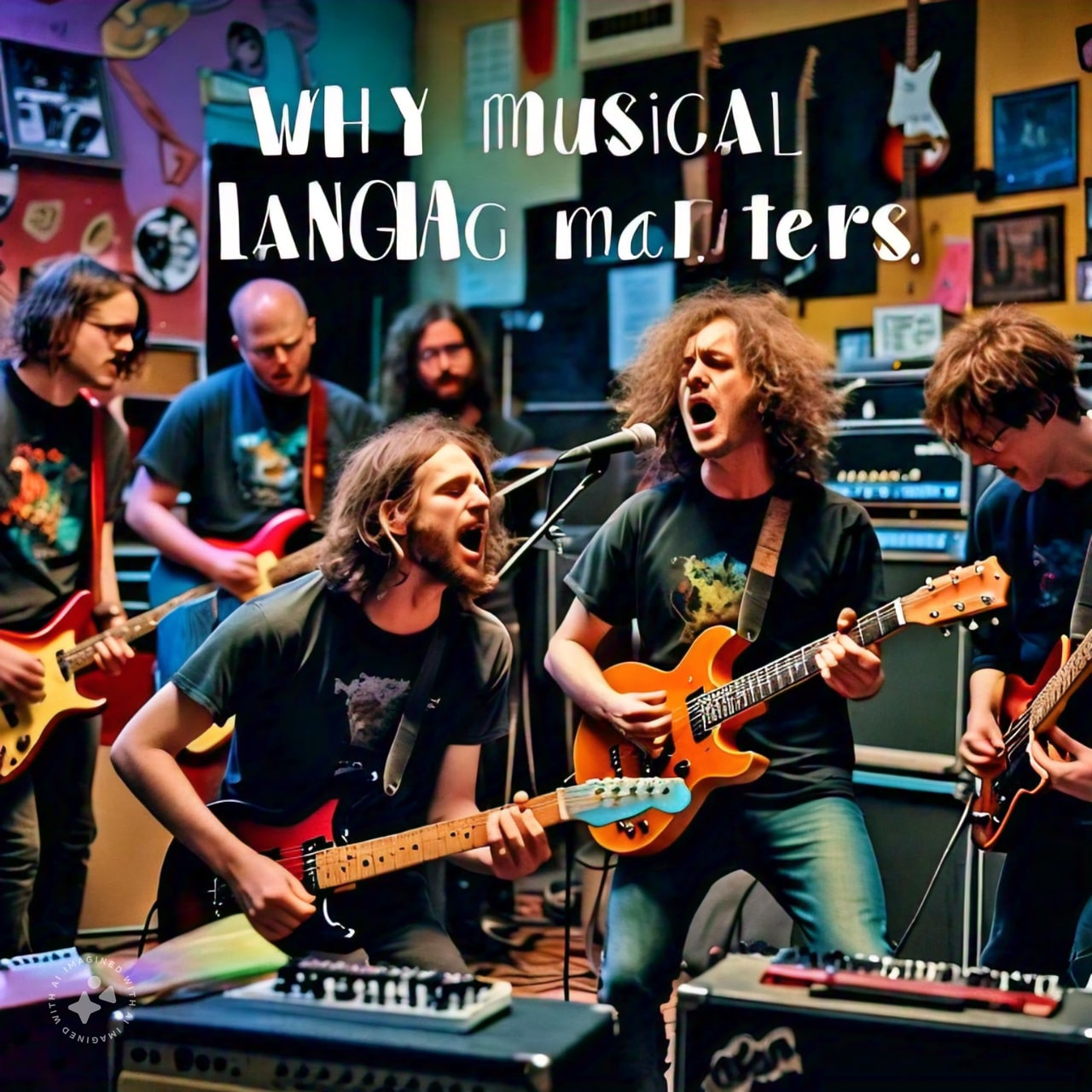
Let musical slang remind you of the endless creativity and passion that music inspires. So, next time you hear a song described as “lit,” remember—it’s not just slang. It’s a spark of connection.
🎶 The Origins of Musical Slang
Every genre has roots, and with them comes a unique vocabulary shaped by cultural, social, and historical contexts. Musical slang isn’t created in boardrooms; it’s born in neighborhoods, at jam sessions, and in late-night studio experiments.
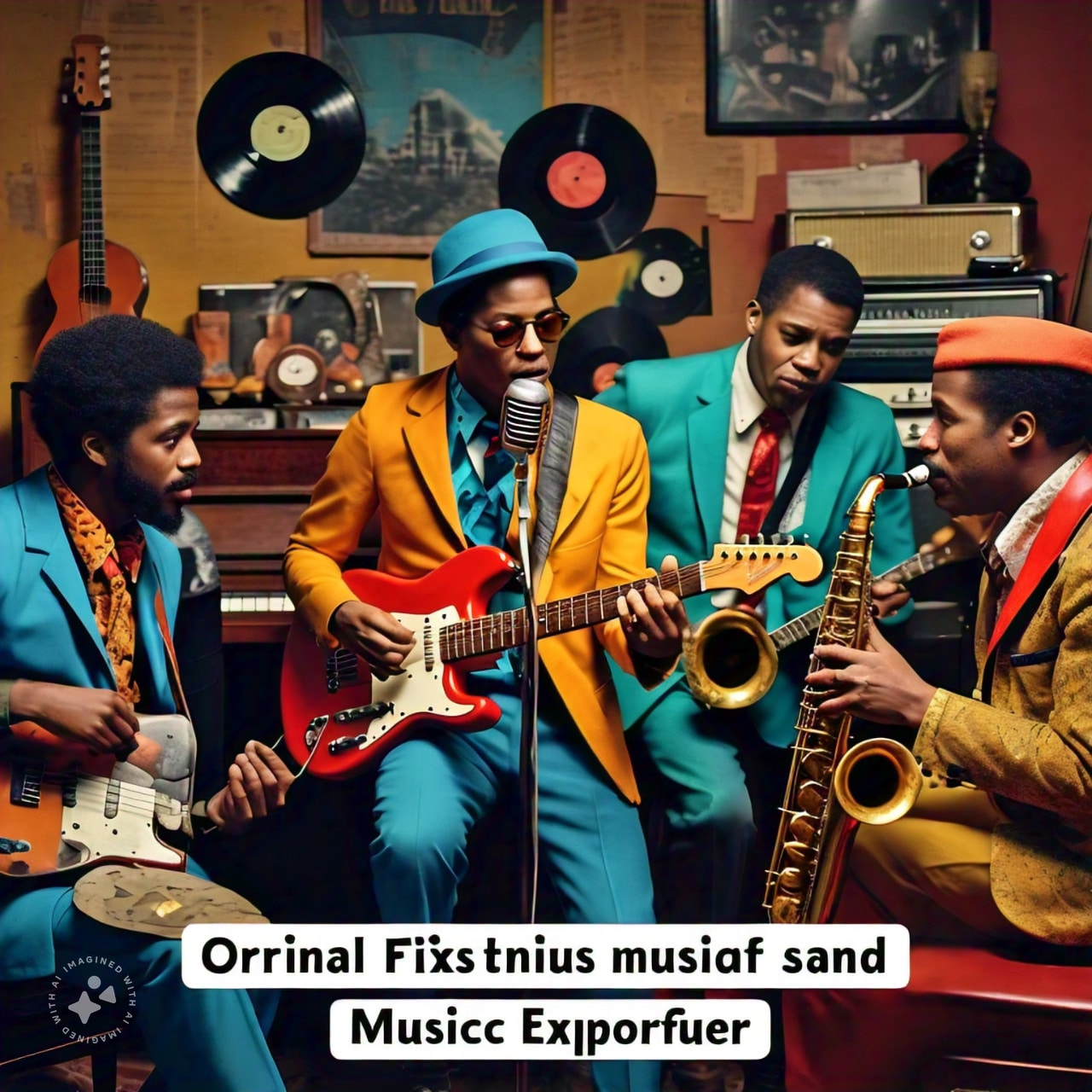
The Streets Meet the Stage
In the early days of jazz, terms like “riff” (a repeated phrase) or “gig” (a performance) were coined by musicians who found their voices in smoky clubs and urban streets. Hip-hop slang, on the other hand, emerged from block parties and freestyle battles in the Bronx, weaving everyday language with rhythmic innovation.
Rebellion Through Rock
Rock ‘n’ roll slang mirrored the rebellious spirit of its fans. Terms like “jam” (to play music together casually) and “headbanger” (a heavy metal enthusiast) embody the energy and defiance of the genre.
🎤 Slang and Identity: Building a Tribe
Slang isn’t just a tool—it’s a badge of identity. For fans, using terms like “stan” or “bop” signals their allegiance to a genre or artist. For musicians, adopting the right slang cements their authenticity and connection with their audience.
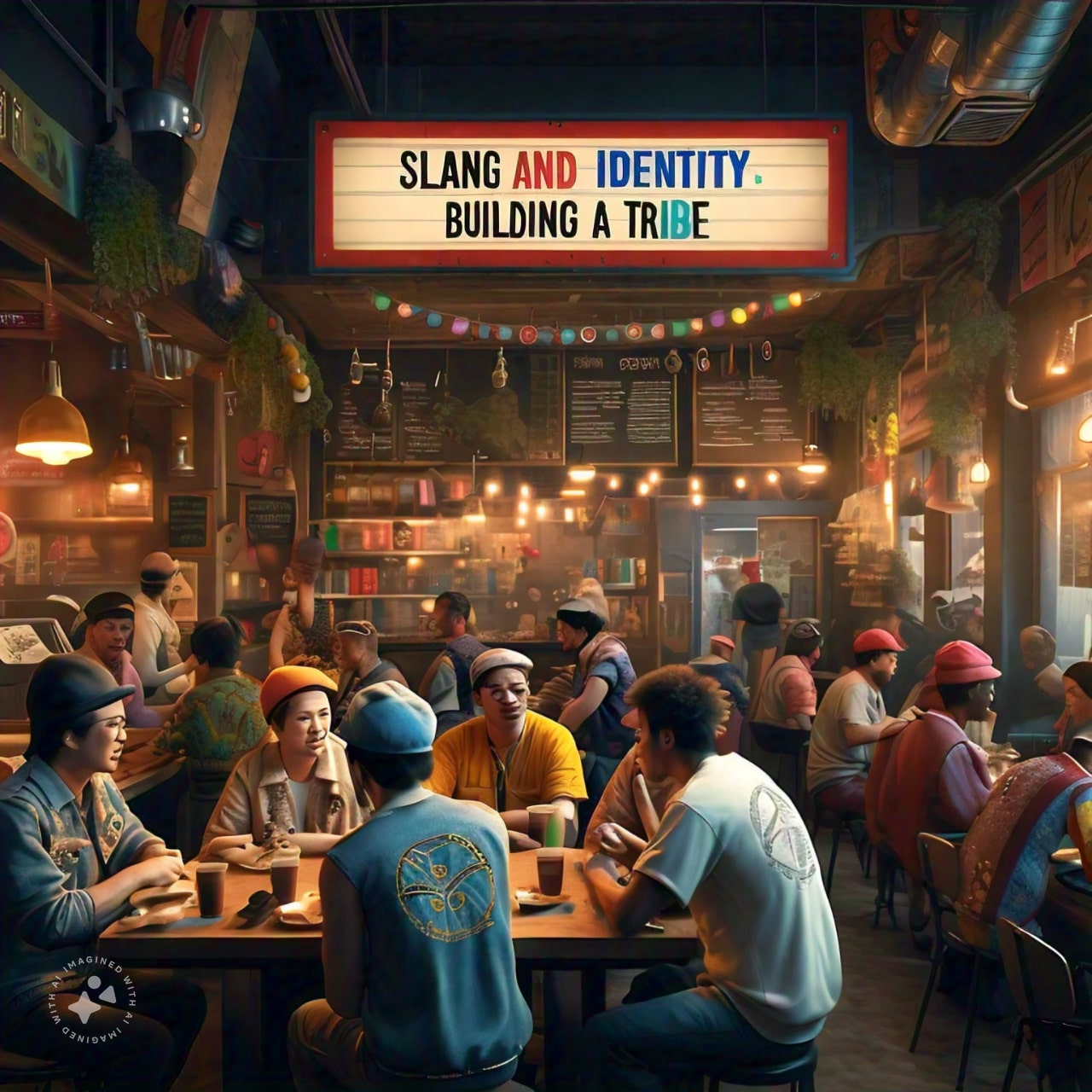
Belonging Through Words
Ever been at a concert when the crowd screams, “This is a vibe”? That shared understanding of musical slang creates a sense of community. Fans and artists alike embrace these words to feel part of something bigger than themselves.
Emotional Currency
Musical slang often carries emotional weight. Calling a track “smooth” conveys more than just technical precision—it suggests a feeling, a memory, or a vibe you can’t quite put into words.
🎧 The Evolution of Musical Slang
Words that once ruled the airwaves may fade, replaced by new phrases that reflect current trends and attitudes.
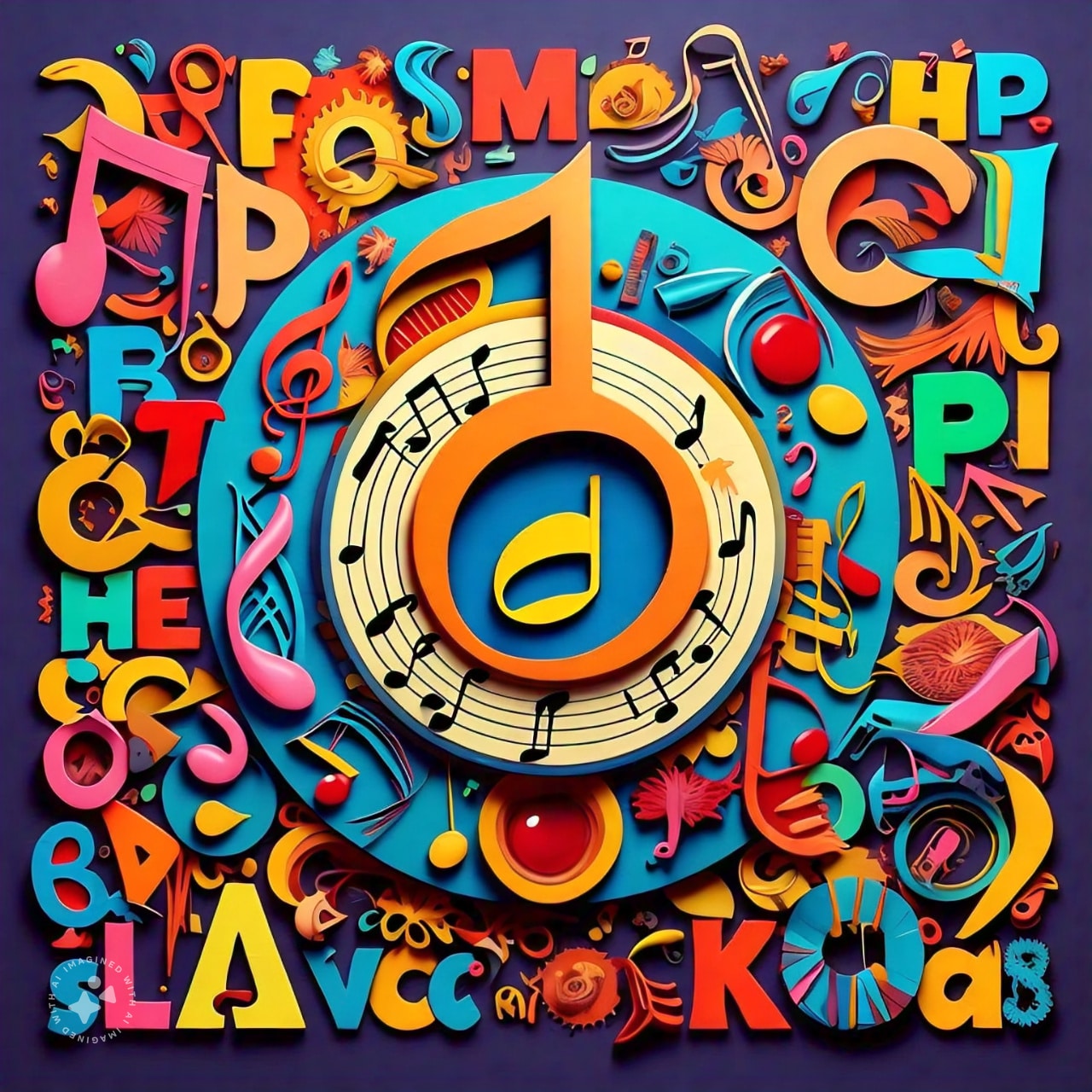
From “Groovy” to “Lit”
In the 1960s, “groovy” was the go-to term for something cool. Fast forward to today, and you’re more likely to hear someone call a track “lit” or a concert “next-level.”
Social Media’s Role
Platforms like TikTok, Instagram, and Twitter are shaping the future of musical slang. Viral challenges, memes, and fan interactions give rise to terms that spread like wildfire. For example, “FYP” (For You Page) became synonymous with music discovery on TikTok.
🎼 Breaking Down Popular Musical Slang
Here’s a closer look at some widely-used slang and their meanings:
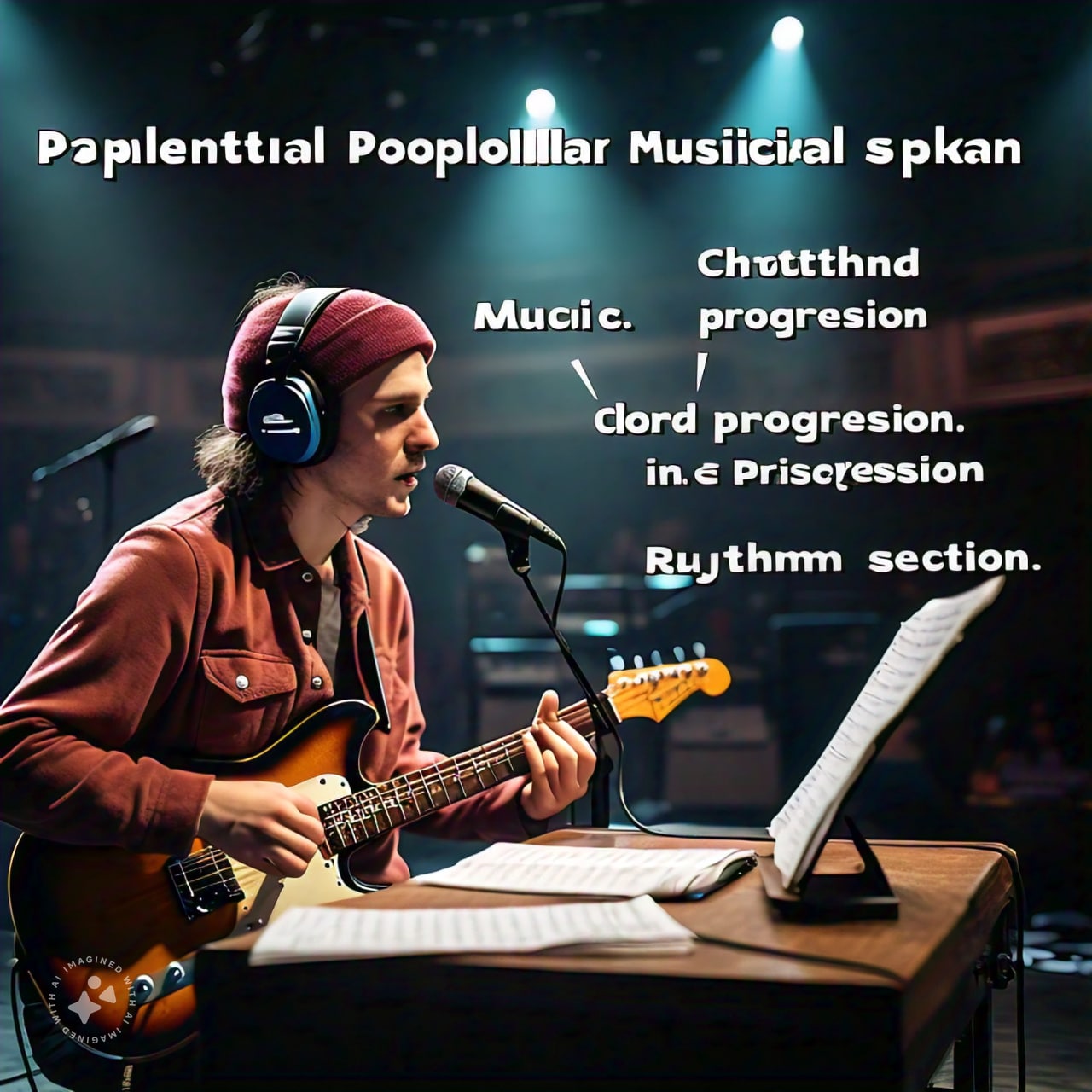
| Term | Meaning | Example |
|---|---|---|
| Banger | A highly energetic or popular song. | “That new single is a total banger!” |
| Hook | The catchy part of a song that sticks in your head. | “The hook in that song is fire.” |
| 808 | A drum sound associated with hip-hop and trap music. | “The 808s in that beat hit hard.” |
| Lo-fi | Low fidelity, often used to describe chill or nostalgic music. | “I love studying to lo-fi beats.” |
| Earworm | A tune that gets stuck in your head. | “This song is such an earworm!” |
| Turntablism | The art of DJing or scratching records. | “His turntablism skills are insane.” |
✨ The Future of Musical Slang
Terms like “AI beats” or “NFT drops” are already entering the conversation, showing how innovation shapes the language of music.

A Global Influence
Thanks to streaming platforms, musical slang is no longer confined to its birthplace. A word coined in a Brooklyn rap studio might resonate with fans in Tokyo or Lagos.
Interactive Evolution
Fans now play a direct role in shaping slang. Online communities, from Reddit threads to Discord servers, constantly coin and popularize new terms. Artists often pick up on these trends, reinforcing their relevance in music culture.
🌟 Why Musical Slang Captivates Us
Musical slang is alive—it’s creative, unpredictable, and deeply tied to human emotion. It makes music relatable, giving listeners a way to articulate feelings that might otherwise be indescribable.

Think of musical slang as the colorful threads in the vast tapestry of sound. It’s not just about the music you hear but the language you use to describe how it makes you feel.
🎵 Final Note
The next time you find yourself humming along to a “banger” or lost in the “flow,” remember: musical slang isn’t just about words. It’s a celebration of the creativity, culture, and connection that music brings into our lives.

What new slang will the next wave of music create? Only time—and rhythm—will tell. Keep listening, and let the lingo inspire you. 🎶
Explore These:
https://slanggalaxy.com/shaping-modern-communication/

